Learn how fashion brands prepare for the EU’s new textile EPR law. Deepwear supports compliance with sustainable sourcing, traceable production, and circular solutions.
The European Union has officially adopted its first-ever Extended Producer Responsibility (EPR) law for textiles. It’s a landmark decision — one that sets the stage for a more circular economy in fashion by making producers financially responsible for the collection, sorting, and recycling of textile waste.
The law represents a meaningful step forward, but for brands, its impact won’t be immediate. Transition takes time. Member states have 20 months to write the directive into national law, and EPR schemes are not expected to take effect until 2028. That may sound far away, but preparation must begin now. The rhetoric is encouraging — implementation will be the real test.
At Deepwear, sustainability is not a marketing add-on. It’s in our core DNA. That’s why our clients are already better positioned to adapt to these changes.
In this blog we cover:
- What the EU textile EPR law means for fashion brands and its key requirements.
- Lessons from other industries on implementing producer responsibility.
- How Deepwear compliance consulting helps brands prepare through sustainable sourcing and traceability.
- Ways brands can turn EPR compliance into a competitive advantage.
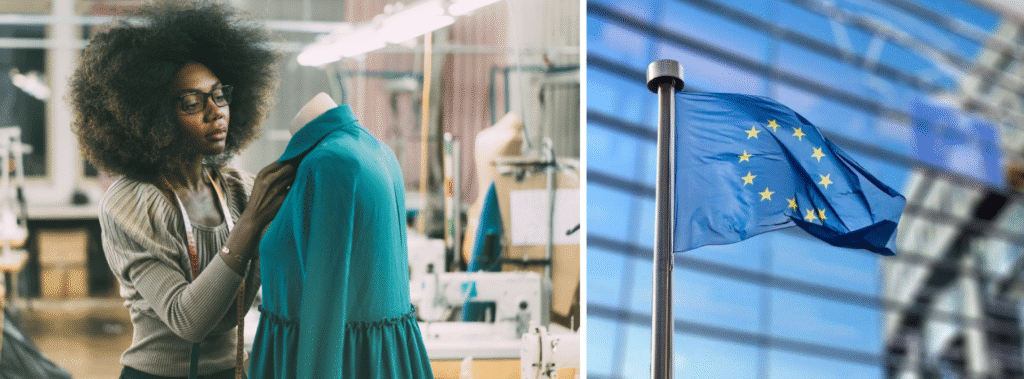
What EPR Means in Practice
Extended Producer Responsibility (EPR) shifts accountability for a product’s entire life cycle back to the producer. Instead of governments or municipalities absorbing waste costs, producers must finance and organize collection, recycling, or safe disposal.
The EU textile EPR law is an application of this principle to fashion. Its main features include:
- Producers pay: Brands and retailers must fund textile waste management systems.
- National registers: Companies must report sales volumes in each EU country.
- Eco-modulated fees: Garments that are more durable, recyclable, or made with recycled content can qualify for lower fees.
- No exemptions: SMEs receive one extra year but must comply as well.
In short, the polluter-pays principle is moving into fashion. Preparing early can lower future costs while strengthening consumer trust.
Lessons from Other Industries
Textiles may feel new to EPR, but the model is already tested elsewhere:
- Packaging and plastics: Japan, South Korea, and Singapore require producers to fund waste collection and recycling.
- Electronics (e-waste): China, India, and the EU enforce producer take-back programs to manage hazardous materials.
- Batteries: Canada and the U.S. run manufacturer-funded collection and recycling schemes.
- Vehicles: South Korea and the EU oblige automakers to ensure end-of-life dismantling and recycling.
These examples show EPR is workable and scalable, but only when rules are clear, infrastructure is reliable, and responsibilities are shared fairly.
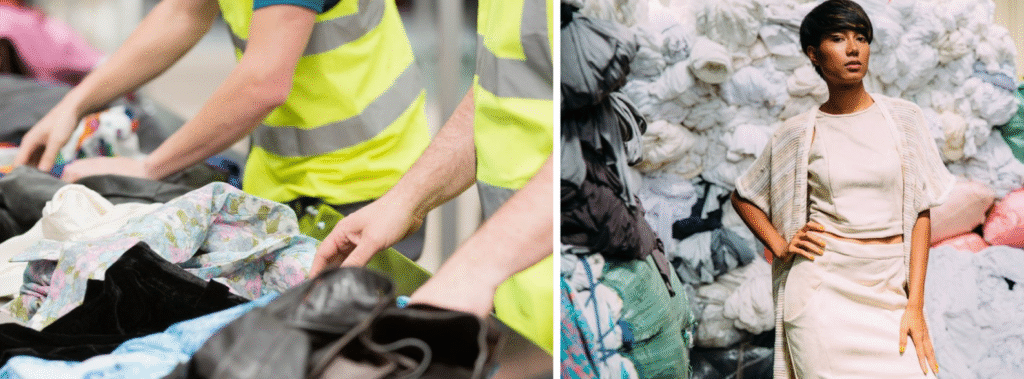
Beyond Europe: Who Bears the Burden?
The adoption of extended producer responsibility is certainly better than doing nothing. But as with many ambitious policies, the gap between rhetoric and real-world impact is wide. Transition takes time, and 2028 may feel far off — yet the fashion industry cannot afford to treat this period as a waiting game.
Without clear timelines and accountability, there is a risk of greenwashing — where the promise of circular fashion programs stays on paper while the real environmental and social costs are exported elsewhere. We have already seen this pattern in the global secondhand trade, where large volumes of unwanted clothing end up in markets such as Kantamanto in Ghana. There, local communities shoulder the environmental and economic burden of managing waste they did not create. We discussed this dynamic in our earlier blog on Sustainable Luxury, where we described the injustice of waste colonialism: Europe and other wealthy regions claiming progress while offloading the consequences to the Global South.
The central question remains: who manages the cleanup, and who bears the cost? Policymakers must answer this with transparent deadlines and fair distribution of responsibilities. At Deepwear, we apply the same philosophy with our clients — no shortcuts, no corner-cutting, only clear commitments and real results. We expect the same from those shaping policies that directly affect human lives and livelihoods.
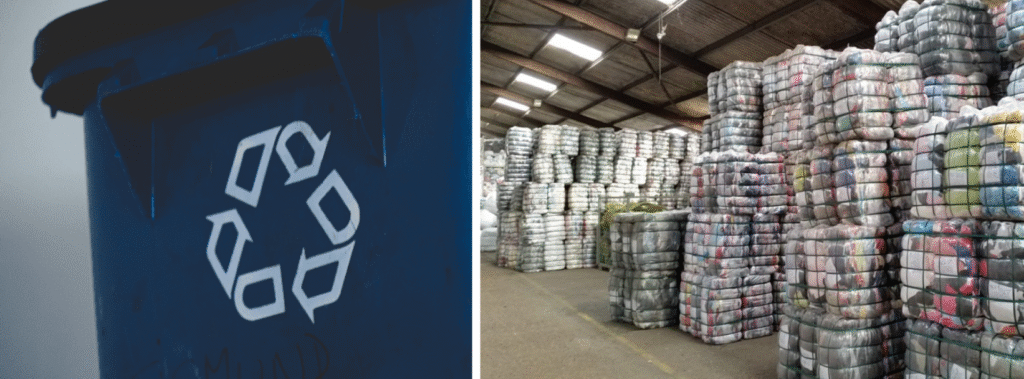
Why This Matters for Deepwear Clients
The EU textile EPR law is a shift in how fashion businesses will operate in Europe:
- Brands selling in the EU must be ready to register products, report sales volumes, and finance textile waste management. For multi-market brands, this means navigating different registers, fees, and reporting systems across countries.
- A single product line distributed in France, Spain, and Germany may result in three different compliance obligations, multiplying both administrative work and costs.
- The eco-modulation principle directly ties sustainability to financial benefit. Garments that are durable, recyclable, or made with recycled content will incur lower EPR fees, rewarding brands that invest in responsible design.
Deepwear compliance consulting helps brands navigate sustainable sourcing, traceable production, and vetted artisan partnerships—so when Europe and other markets enforce circularity, your brand can enter confidently, reduce waste, and strengthen long-term credibility. Explore our Catalogue for more information.
Deepwear Advantage
This is where Deepwear clients have the edge. For years, we’ve partnered with factories, manufacturers, and artisans who are stewards of both craft and environment. Many of these partners have been in the industry for decades, practicing methods that inherently reduce waste and protect resources. This long-term perspective aligns perfectly with the EU’s demand for circularity.
Our clients benefit from:
- Eco-friendly sourcing at scale — From organic cotton mills in India to low-impact dye houses in Vietnam, our partners are already producing responsibly.
- Traceable production systems — Every stage of production is cross-checked through audits and long-standing relationships with trusted factories. If a supplier falls short, we shift to one that meets the standards, so brands can rely on accurate reporting and accountability.
- Seamless EU scaling — We’ve guided brands through the complexities of expanding across multiple European markets, keeping compliance smooth and affordable.

What Deepwear Can Do for Clients
To prepare for the EU’s textile rules and to stay ahead of similar measures that may eventually appear in Asia, brands may consider exploring different approaches. Deepwear can support, depending on business needs:
- Baseline audits: mapping product volumes by market, fibre composition, and recyclability notes. This creates a foundation if compliance or reporting becomes necessary.
- Responsible supplier prioritisation: showcasing artisans, factories, and manufacturers with long-standing commitments to craft and environmental stewardship, many of whom already document material use and waste streams.
- Voluntary circular programs: small-scale pilots in Asia, such as garment take-back, repairs, or upcycled capsules, which can test logistics and strengthen brand credibility.
- Modular reporting packs: reusable documentation covering production volumes, material certificates, and circular program metrics that could align with different jurisdictions’ requirements.
- Early engagement with trade associations and PROs: monitoring how EPR frameworks develop and identifying ways to avoid duplicate fees if multiple markets adopt similar schemes.
These are not immediate obligations. Instead, they represent optional pathways that brands can activate if needed. Deepwear’s role is to provide the tools and partnerships so that when regulations take effect, clients already have a clear, flexible system in place.
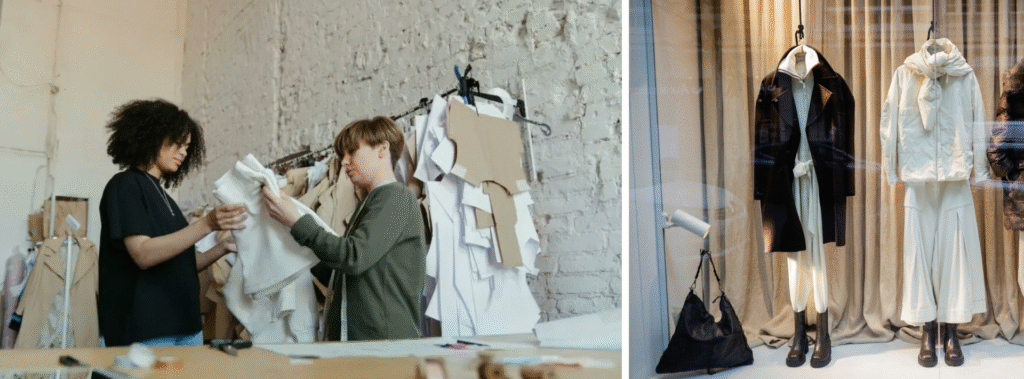
What Is the EU’s EPR Law for Textiles and How Does It Affect Fashion Brands?
The EU’s Extended Producer Responsibility law makes brands financially responsible for textile waste management, including collection, sorting, and recycling. Key obligations include reporting sales volumes, funding systems, and paying eco-modulated fees. Compliance starts in 2028, but preparation should begin now. Deepwear compliance consulting helps fashion brands with audits, sourcing, and circular strategies to reduce costs and risks.
Lead a Circular Future
Meeting compliance requirements may feel complex, but with Deepwear’s global spider network — 17 offices staffed with experts on the ground — brands gain a clear advantage. Our teams oversee every stage of production, track shifting market conditions, and provide actionable guidance, helping brands reduce waste, optimize sourcing, and scale across multiple markets responsibly.
Taking proactive steps now does more than avoid risk; it opens doors. By integrating sustainable sourcing, traceable production, and circular programs, brands can build consumer trust, strengthen their reputation, and gain a lasting competitive edge. Beyond compliance, Deepwear can advise on market trends, cost optimization, and strategic expansion, ensuring that every decision balances environmental responsibility with business growth.
Fashion is entering a new era — one defined by circularity, transparency, and accountability. With Deepwear guiding every step, your brand can navigate complexity with confidence, act responsibly, and thrive in a landscape where sustainability and compliance go hand in hand.
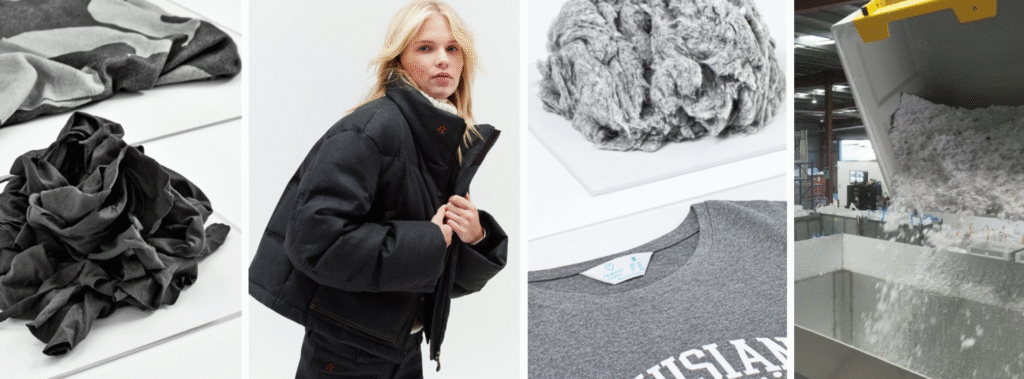
Ready to prepare your brand for the EU textile EPR law? Book a strategy call with Deepwear’s compliance consultants or explore our sustainable sourcing and circular economy solutions today.